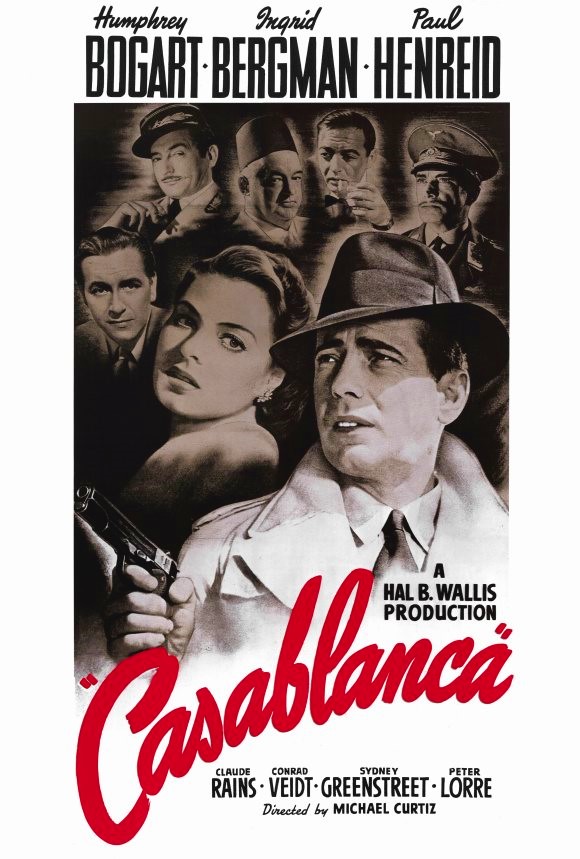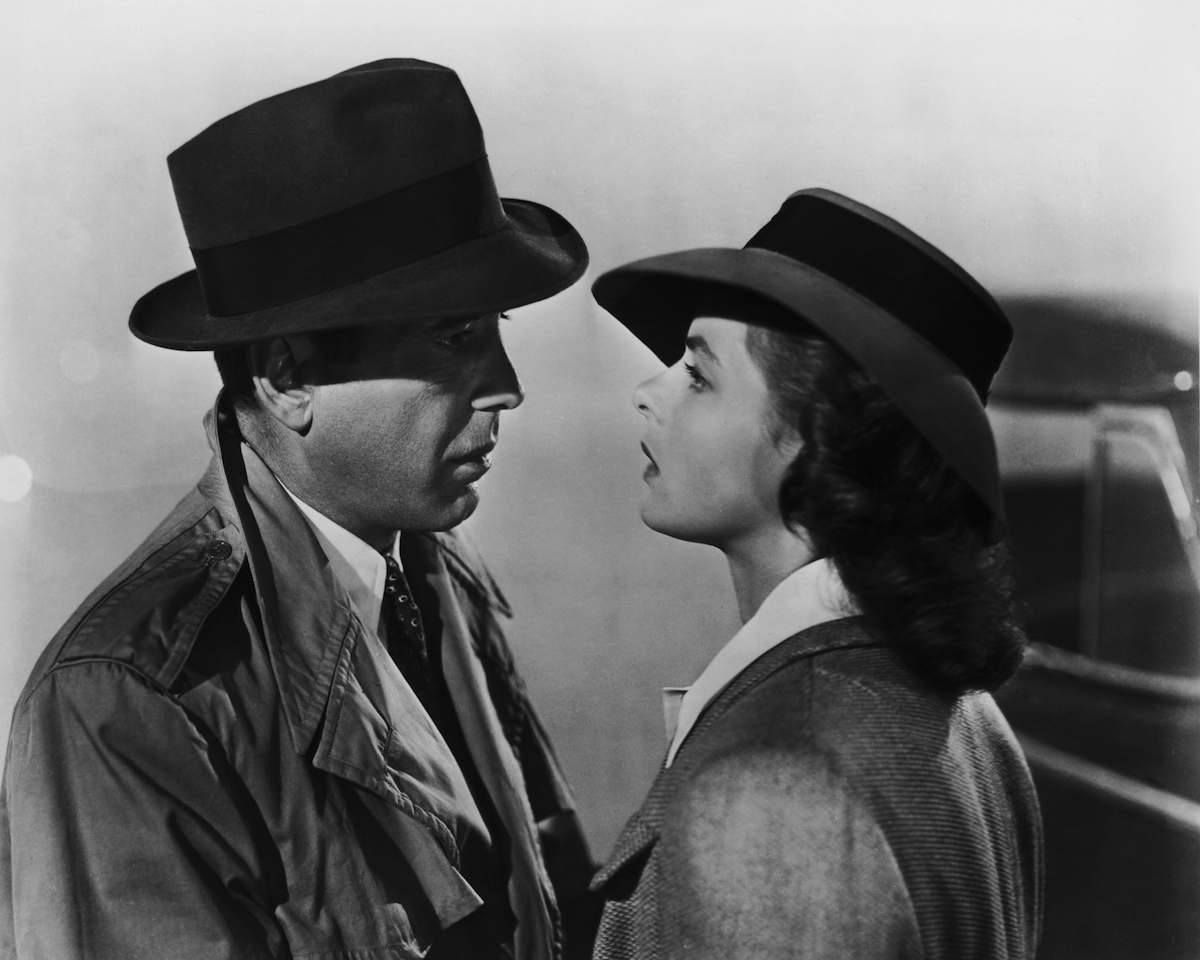
Last year in my film criticism course, my teacher gave our class an assignment to watch a movie and review it. I was just starting to learn the craft of screenwriting, so in order to choose a film for my project, I went to Google to find the greatest screenplay of all time. At the top of the Writers Guild of America’s list of the greatest screenplays of all time is Casablanca.
When I first watched this film I was immediately taken aback. This was the first time I watched an entirely black and white movie so my expectations were low. However, I immediately fell in love with this movie and knew that it was one of my most favorite films ever. A few weeks ago, I decided that I couldn’t claim any movie to be my favorite if I had not seen it more than once, so I decided to rewatch it. With this movie fresh in my mind, I want to explain why this movie is my absolute favorite, and why it is one of the greatest of all time.
Let’s begin with the writing. The screenplay was written by Julius J. Epstein, Philip G. Epstein, and Howard Koch. The story follows Rick, a bar owner in Casablanca, which serves as a purgatory during WWII where people go to try and escape to America. Rick’s lonely, and peaceful life in Morocco is interrupted when an old flame, Ilsa, arrives with her husband Victor Laszlo. What makes the writing of this movie genius is that the writers effectively hid a mountain of moral lessons in a cloud of entertaining drama. As the audience watches a story about love in times of war, they are really watching a story of moral duty. Also, Casablanca is one of the first films to have a non-linear timeline, relying on flashbacks to reveal Rick and Ilsa’s past.
The film revolves around Rick, and uses him as a symbol for the United States during the war. Rick is an idealist turned cynic after he was abandoned by Ilsa, the love of his life. However, when she returns with her husband Victor, the leader of the resistance against the Nazi’s, he can longer remain in his isolationist position. Ultimately, Rick chooses to help Ilsa and her husband escape, thus showing that responsibility is more important than love during times like these.

Casablanca is also one of the first films to blend genres. Director Michael Curtiz mixes melodrama, film noir, and german expressionism to play with the audiences emotions. While the lighting of the film is symbolic of who the characters are, the melodramatic structure of the movie, prevents the film from being pretentious.
For example, in the midst of this love story we get shots like these, that while subtle, are highly symbolic of who these characters are. This shot shows Rick with one side of his face illuminated, and one side of his face hidden in the shadows. This lighting is representative of his torn nature between the cynical mask he puts on, and the repressed idealist.
The mastery of Casablanca cannot be discussed without mentioning the incredible acting in this film. All of the performances from the three leads, Humphrey Bogart, Ingrid Bergman, and Paul Henreid, are subtle yet mesmerizing. With each and every look on Humphrey Bogart’s face, he emanates the deep sorrow of his character. Ingrid Bergman’s wide eyes and quiet smile always lets the audience know she is hiding deep turmoil, and Paul Henreid’s furrowed brow and chiselled face expresses his characters defiance to the Nazi’s.

What I find really interesting is that in a movie about how the current war was destroying people’s lives, there is only one dislikable character: Major Strasser, a powerful Nazi, and he is not even a main character in the film. All throughout the film even the devious characters like Captain Renault are charming. I think that the reason for there being so many likeable characters is because the enemy in this movie is so clear, and was so very real at the time of its release. The audience doesn’t need to be given a handful of scenes where we learn the ins and outs of the antagonist, because every person in the world at that time, and now, knew all of this backstory. The real and well-known villain of the movie afforded Curtiz the opportunity to focus on those who were being affected by the war rather than those who were the cause of it.
Casablanca is one of those movies where at one point or another in your lifetime you have to see it. You are at a cultural and spiritual deficit if you do not. This film is everything wrapped up into a blissful 102 minutes. This movie is heartbreaking, inspiring, funny, and heartwarming. The fact that it was made in the midst of the war is baffling to me. The self-awareness and courage of Curtiz and everyone else who worked on this movie is astounding and is something they do not get enough credit for.
If you ever have a day where there is not much to do, please put your phone down, get comfortable and watch this movie. You will not regret it.
I loved your review of Casablanca! I have heard of this movie in many settings but have never actually sat down and watched it, and now I think I have to! I love how engaging your writing is, how fun it was to read, and how easily it flowed. It was nice to be able to get the short and sweet version of a movie review without skipping any major details, while including a thorough analysis of the genres, themes, characters, and so much more! I have only watched one black and white movie before, and I have to say that it was a lot more interesting than I anticipated (it was Schindler’s List, so similar themes of WW2 and Nazi Germany). It seems that Casablanca shows a perspective of the WW2 time period that isn’t highlighted very much in Hollywood and in society, which makes me want to watch it even more! Thanks for the amazing recommendation!